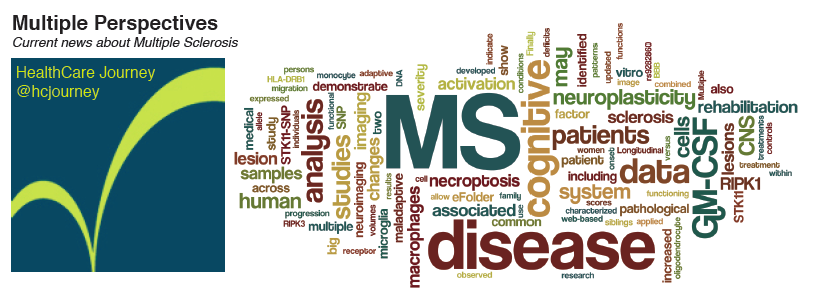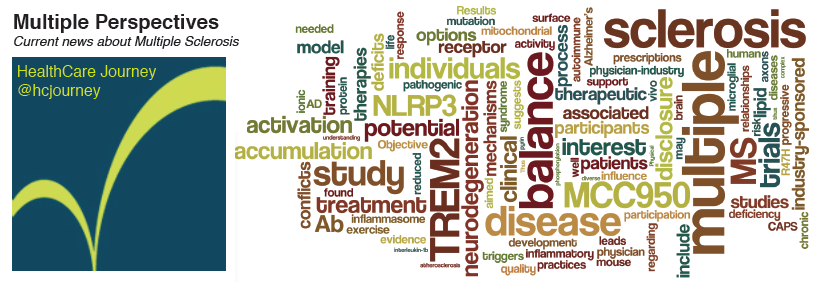 Genetic risk factor increased in women, may be linked with disease severity. A new study has found that a change in the gene STK11 may occur more often in women with MS, and may be related to less severity of the disease.
A closer look at how cells die in MS lesions suggests that a new drug might be useful for treating MS. Researchers showed that a substance that blocks certain enzymes stop the damage to the myelin in experiments using mice with MS and in culture experiments with human cells. Not only does this tell us more about disease mechanisms, but it also provides something new to target for MS therapy.
Big data in MS requires central database. One way to collect and store a lot of data from a lot of people is to build a structure to hold the data. This is called a database. Having a large database with information from a lot of people with MS, such as the imaging of their brains with MRI, will let researchers track data easily and over time. This will allow researchers to look for patterns and trends in the data. Early work in the eFolder project builds the framework for such a database that will be open to any person with MS and will allow researchers to be able to get to the data, and to look for relationships in the data.
GM-CSF: traffic control cop of blood-brain barrier. The blood-brain barrier protects the central nervous system from cells that cause the inflammation in MS. One type of cell has been shown to be related to the cause of MS in many ways. This cell is called the granulocyte-macrophage colony-stimulating factor (GM-CSF). A study in the European Journal of Immunology has shown that GM-CSF makes it easier for monocytes, a kind of immune cell, to get across the blood-brain barrier.
If you haven't already registered with us, please Register Now to receive Multiple Perspectives in Multiple Sclerosis (MPMS) weekly! CLICK HERE For more on these topics, click on the "READ MORE" below Multiple Perspectives In Multiple Sclerosis (MPMS) is written by Brittany Goods and reviewed and edited by Deborah Backus PhD |
Archives
April 2015
About Dr. Debbie
Deborah Backus, PT, PhD is Director of Multiple Sclerosis Research at the Shepherd Center in Atlanta, Georgia. Dr. Debbie received her B.S. in Physical Therapy in 1986, and her Ph.D. in neuroscience in 2004. Categories
All
|
- Home
- About Us
- Virtual MS Center
- News & Resources
- Seminar Registration
- Health & Wellness
- Blogs
- About MS
-
Symptoms
- Balance and Walking Issues
- Breathing/Respiratory
- Bowel Dysfunction
- Cognitive Dysfunction
- Crying/Laughing Uncontrollably (PBA)
- Depression and Anxiety
- Dizziness/Vertigo
- Dysphagia
- Fatigue
- Foot Drop
- Hearing or Smell or Taste Changes
- Heat Sensitivity
- Leg Weakness
- Loss of Hand Dexterity and Coordination
- Memory and Mutliple Sclerosis
- Migraines
- Numbness/Tingling/Altered Sensation
- Nystagmus and Oscillopsia
- Pain
- Sexual Dysfunction
- Sleep Issues
- Spasticity/Spasms/Cramps
- Speech/Swallowing
- Urination/Bowel Problems
- Vision
- MS Clinics
- MS Topics
- Register With Us
- Terms of Use/Privacy/HIPAA
- MS HealthCare Journey


 RSS Feed
RSS Feed
